Charles Pakana (Victorian Aboriginal News):
I’m joined today on the Referendum 23 Tapes podcast by Wurundjeri Woi Wurrung elder Uncle Andrew Gardiner, who is also a member of the First Peoples’ Assembly of Victoria. Now I’ll state here that he is not speaking on behalf of the Wurundjeri Woi Wurrung people or the traditional owner group but as an elder advocate for the voice to parliament. Uncle Andrew, welcome to the podcast.
Uncle Andrew Gardiner:
Good morning, Charles. Good to be with you.
Charles:
Unc, you’ve been involved in quite a number of public presentations about the voice to parliament and you’ve obviously had to deal with a large number of comments and questions from the general community. What do you see as being some of the main concerns about a possible voice to parliament?
Uncle Andrew:
It’s interesting where some communities feel that if they support the Voice, would there be sort of negative backlash against them?
Charles:
Right.
Uncle Andrew:
Obviously, if individuals are voting, there’s no way of telling what their cultural background is. But I guess from a particular polling booth that could be assumed there’d be a population of a particular demographic or community group in that area. But at the end of the day, doing the right thing, participating in Australian life is the opportunity of everybody. And it’s important maybe not to focus too much on the negative things and listen to more about what the positive things could be. Like anything, it’s about how we perceive things and understand them and how they’re explained clearly. So that’s what I’m trying to do today.
Charles:
Now there’s obviously quite a number of issues that arise in presentations, and you and I have been involved in a couple together over the past couple of weeks where some really interesting points come up and you scratch your head and wonder, “Wow, where did that curly one come from? That’s obviously based on a fair bit of disinformation.” What are some of the most shocking comments or questions that have really struck you over the past couple of months where you’ve been on the road?
Uncle Andrew:
Well, I think most of it sort of coming from either the government. Not exactly the government. It’s coming from politicians, and that is that they’re supposed to be leading the opportunities that enable various communities around Australian life to advance and prosper. And for some of those politicians to actually announce and supporting former politicians but also supporting party people.
Charles:
Yeah.
Uncle Andrew:
They seek to create misinformation but also create an air of uncertainty so that they think that if they can do that, then there’ll be more people voting no because they don’t know what it’s going to do. You need to find out what it’s going to do. Well, the first initial thing is to vote yes and then the process of defining what it’s going to be. So the scaremongering, I guess the issue of saying that it will divide the country, that why should Aboriginal people be enshrined or acknowledged or recognized in the constitution above every other Australian citizen, it defies belief because there’s so many clauses in the constitution that this affect our people-
Charles:
Yeah.
Uncle Andrew:
… particularly. Not everybody else. When we look at those things and we go, “Well, hang on, we’re already being treated unfairly,” how can a voice to parliament actually divide the country and be seen to be such a negative avenue for small-minded people?
Charles:
Well, let’s look at some of the other questions that have come up and one of those that came up last night was about sovereignty and that question from that person in the audience.
Uncle Andrew:
Sure.
Charles:
Does this-
Uncle Andrew:
Sure.
Charles:
… impact on Aboriginal sovereignty?
Uncle Andrew:
[inaudible 00:03:46].
Charles:
I know you were somewhat emphatic in your response but let’s just clear it up right now. It’s not something we’ve dealt with here on the podcast before, but will a Voice impact or give away any First Nation sovereignty anywhere in the country?
Uncle Andrew:
No, it won’t. Aboriginal and Torres Strait Islander people know that their sovereign rights have never been ceded and that land has been taken away, sold from under us, never recompense to us. And so we call ourselves traditional owners because that’s what we are. We are traditional custodians and we look after our land. But the fundamental thing about sovereignty, it isn’t going to affect the national interest of sovereignty. It recognizes a particular group in the community that had sovereign rights taken away from them. And so it is just about being able to recognize that those can be put back into place and get along with everybody in multicultural Australia.
Charles:
Now another thing about which you are very passionate and so it should be, you’ve been on the First Peoples’ Assembly now for, what, about four years. So ever since it started here in Victoria, when it comes to treaty, there’s obviously a lot of confusion out there in community. Well, should we have voice before treaty or treaty before voice or is treaty something about which to be really scared? Are we going to lose our backyards? All those stories, you’ve been living them for the past four or five years. Shed a bit of light on that general treaty area as it relates to the voice.
Uncle Andrew:
So the treaty proposition in Victoria, not nationally.
Charles:
Yup.
Uncle Andrew:
But in Victoria only relates to traditional owners and their traditional connection to country. And what their opportunity is to undertake and negotiate their treaty aspirations with the state government representing the state of Victoria and the Victorian people to rectify the issues of the past, to take into account of those things, the truth-telling components, and make reparations so that we have opportunities to deliver our self-determination requirements and obligations to our communities so that we can actually advance our communities and actually become part of the Australian landscape just like everybody else, not being second class citizens all the time, having been persecuted and oppressed for somewhat 150 years. These things need to be clarified and heard so that the doors can actually be opened. Now, sovereignty and a voice, truth and treaty, they’re all an amalgam. They all have linkages together.
Charles:
Yeah.
Uncle Andrew:
But if we look at the voice in itself, it’s really just an opportunity for Aboriginal and Torres Strait Islander people who are properly represented and elected to be able to communicate the issues of the day with the parliament as well as the government. That’s all that is.
Charles:
It’s nothing to be scared about, is it? I mean, I remember the lead up to the First Peoples’ Assembly of Victoria, the treaty commissioner, Jill Gallagher was constantly being asked questions or having to deal with concerns that, “Are we going to lose our backyards? Are we going to have to pay to go into public parks?” And that’s a bit of a fallacy, isn’t it?
Uncle Andrew:
Yeah, absolutely, absolutely. Yeah, these things aren’t on the agenda for treaty. Treaty is about Aboriginal communities being able to rectify the issues of the past so they can have a better future and participate in Australian life handing back or giving back some land which was stolen in the first place so that communities can actually progress their aspirations for their communities’ development. I don’t see that as a big issue. The opportunities that will present for self-determination and community development in terms of enabling young people to knock it on to a criminal pathway.
Charles:
Yeah.
Uncle Andrew:
They’ll stay engaged in school. They’ll get better outcomes for educational and training opportunities. Our communities will grow and prosper just like everybody else’s should be able to.
Charles:
You’ve actually segued nicely into the next question and that or the next subject, and that is that the benefits of the voice with regard to the lives of Victorian Aboriginal people. So let’s not talk about other remote regions.
Uncle Andrew:
Yeah.
Charles:
But in Victoria, which is your home country, what do you see some of the key benefits being to the mob and then maybe also the general community?
Uncle Andrew:
The voice in terms of how it would relate to government, the federal government.
Charles:
Yeah.
Uncle Andrew:
In seeking opportunities for Victoria to advance issues that aren’t being properly dealt with at the moment in terms of opportunities for continued employment and educational and training and employment opportunities but also self-determination and cultural heritage, it should be able to enable communities to grow their pathways. But also from a local and state perspective but then be seen in a national perspective as well, each state has its own issues. Victoria has its quite particular issues.
Charles:
Yeah.
Uncle Andrew:
We have 38 tribes across Victoria, linguistic tribal groups, and they’re not properly represented in the community. Treaty should be with traditional owner groups that can help advance opportunities through bringing the rest of the community along with it. That’s one of the downsides. We have to overcome that information barrier, which is a lot of Aboriginal and Torres Strait people living in communities feel that they’re going to left behind or how come traditional owners are going to get everything. Well, there’s been mainstream Aboriginal community organization that has been developed since the early ’70s, late ’60s, early ’70s. They have looked after community development opportunities, family service, children’s services, a whole host of housing supports, all sorts of things not necessarily targeting traditional owner groups and cultural heritage. That’s come on in the last 20 years. And so cultural heritage is in catch up.
Charles:
And you believe the voice will assist in this though?
Uncle Andrew:
Exactly, it will. Exactly, it will. Why? Because people should be able to have their treaty aspirations dealt with-
Charles:
Yeah.
Uncle Andrew:
… but then the main thread of other community support mechanisms coming down from the Commonwealth as Aboriginal and Torres Strait interests progress themselves, we should be able to have a more fuller opportunity of people to be engaged in the Australian society. We should be able to look after employment opportunities in our own mob, in our own backyard doing their own particular industries but they should be able to gravitate out into the general community and be able to have a career in whatever issue that they want to be involved in.
Charles:
You’re talking here about closing the gap targets, aren’t you? Because you’ve talked about-
Uncle Andrew:
Yeah.
Charles:
… housing, education, employment. I mean, they’re three of the main areas within closing the gap. So obviously, I’m interpreting here you or paraphrasing you that you have a belief that the voice can contribute mightily to closing the gap, which has alluded the governments, successive governments for goodness knows how many years.
Uncle Andrew:
That’s right. But also the fundamental thing about health, our health gap hasn’t… Well, it has shrunk. The gap has shrunk, but it hasn’t shrunk as quickly as everybody would’ve liked 15, 20 years ago.
Charles:
For sure.
Uncle Andrew:
So there still is a proposition that the government through the voice to parliament saying we need additional supports in these areas. There are only 150, 160 odd Aboriginal community control health organizations out there in the country, but there’s thousands of GP medical practices.
Charles:
Yeah.
Uncle Andrew:
Not every Aboriginal and Torres Strait Islander people goes to them. They [inaudible 00:11:43] go to their [inaudible 00:11:45]. So the [inaudible 00:11:45] need to be supported more, and that’s a fundamental thing that the federal government can actually assist with through our health portfolio. And that’s something that the voice could actually aspire to promote and show proper briefings that a bit more funding in a certain area would actually have extreme outcomes-
Charles:
Now I just want to-
Uncle Andrew:
… extreme outcomes for improved health.
Charles:
I just want to jump back on something you said before and you started to allude to a sharing of culture, and it’s something that you and I have yarned about, you made mention of last night. And at that event last night, you actually gave an example of when you go to the airport in New Zealand, you’re immediately surrounded by Maori culture. Whereas what you and the Wurundjeri Woi Wurrung have tried to do with regard to the Melbourne airport is essentially bashing your head against a brick wall, trying to get some culture in there. So do you see that the voice being a bit of a segue or a support mechanism to sharing First Nations culture with the country? Because it’s beautiful culture out there.
Uncle Andrew:
It is. It is an opportunity for recognition of First Nations people and their cultural differences within each state.
Charles:
Yeah.
Uncle Andrew:
But particularly talking about Victoria, we should have our collective cultural imagery represented at the airport. Because when people come to Melbourne, to the GP, the Grand Prix or the AFL Grand Final or the Australian Tennis Open or any other major activity that’s happening in Melbourne, the Melbourne Cup, whole range of other things, they should see that at the airport. Not just the billboards or whatever the big event is, there should be Aboriginal cultural recognition through the airport. As people stream through, they’re looking at it and go, “Oh, gee, look at that. Oh wow, look at that.” These things need to be on show so that they know that Aboriginal people still exist here, not walking, going, oh, there’s no black folk there.”
Charles:
This obviously frustrates you. I can detect a definite note of frustration in your voice.
Uncle Andrew:
Well, exactly. And the voice should be able to do that talking to the federal government saying this needs to be a highlighted issue. In each state and territory, particularly Melbourne, we’ve had that conversation with the city of Melbourne and they’ve been very supportive of that ideal. They’ve even had some communications with the Melbourne Airport Corporation and not bagging the Melbourne Airport Corporation that-
Charles:
No, we won’t do that.
Uncle Andrew:
It needs to have that emphasis.
Charles:
Yeah.
Uncle Andrew:
To be an international airport, it should be here’s the first thing… Somebody coming from Europe, first time ever, there should be something that says Aboriginal people exist here. Not, “Ah, there’s no black fellows there at all. They’ve all been killed off.”
Charles:
Yeah.
Uncle Andrew:
Do you know what I mean? So it’s that evident practice that says “We’re still here.” It shouldn’t just be a NAIDOC week thing. Those sorts of imagery things should translate to people coming to Victoria, coming to Melbourne and going, “There’s Aboriginal culture. I’d like to actually go and see something like that.” Go to the heritage trust in town or [inaudible 00:14:44]-
Charles:
Oh, absolutely.
Uncle Andrew:
… within cultural sector.
Charles:
Yeah.
Uncle Andrew:
Or whatever those other sites are around Victoria, they’ll gravitate out to those things because they want go and see them because they’ve been introduced to them at the airport.
Charles:
Let’s look at it from an international perspective and we’ll finish it up with this one. Do you believe that if a voice were to get up on the 14th of October that it would impact positively on Australia’s image on the international stage?
Uncle Andrew:
Oh, absolutely, absolutely.
Charles:
In what way?
Uncle Andrew:
It will say to the international community that Australia is looking at its First Peoples and recognizing them properly and respectfully and enabling the participation and the negotiation and also the listening. Because it’s all the Uluru statement was about, was saying, “Government, please listen to our concerns so that we can actually get our message across.” That would make for an international audience. That would make Australia a much more friendly, a much more respectful and are much more interested in their traditional owners, in their First Nations people. And it would overcome some of those issues around the commonwealth. Australia’s the only commonwealth country that doesn’t have treaty with its indigenous people. These things could be overcome in coming years.
So the opportunities to advance and actually improve the country’s outlook as a multicultural population inclusive of its indigenous people, inclusive of its First Nations people to gather together and actually welcome and include everybody else coming to Australia to be an Australian citizen and do the best they can and be involved in the Australian opportunity of a fair go. That’s a great thing. And the country should look at that and bring us in and help lift us up because we’ve been doing some heavy lifting. We’ve been lifting the country out-
Charles:
No doubt about it.
Uncle Andrew:
… from a deficit position.
Charles:
Yeah.
Uncle Andrew:
So there’s a reciprocal rights and all this and we need to recognize that. The government can get a lot of good positive ticks out of it and advance our community’s uplift.
Charles:
Well, Uncle Andrew, thank you so much indeed for your time. Look forward to sharing the stage with you again at some more events in the lead up to the referendum. I’m sure there’ll be more than one or two opportunities. Until then, stay safe and thanks again for coming on to the podcast.
Uncle Andrew:
Thanks, Charles.


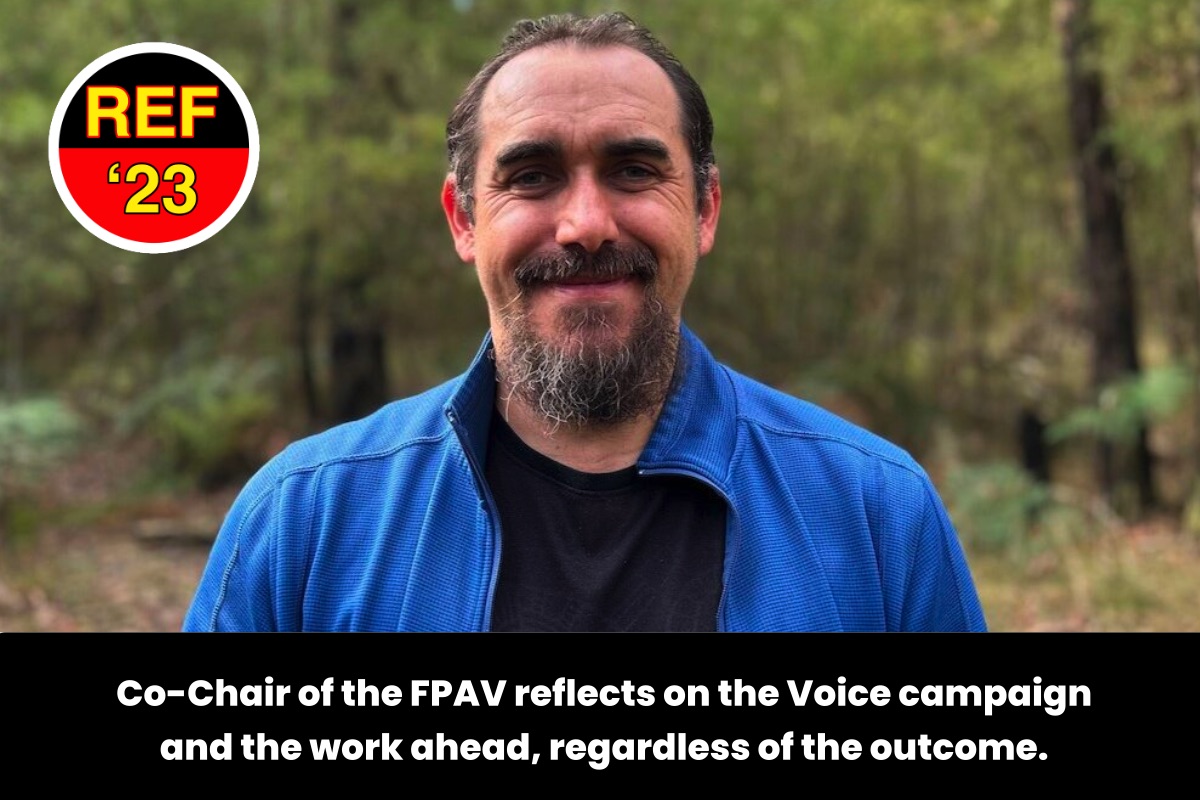
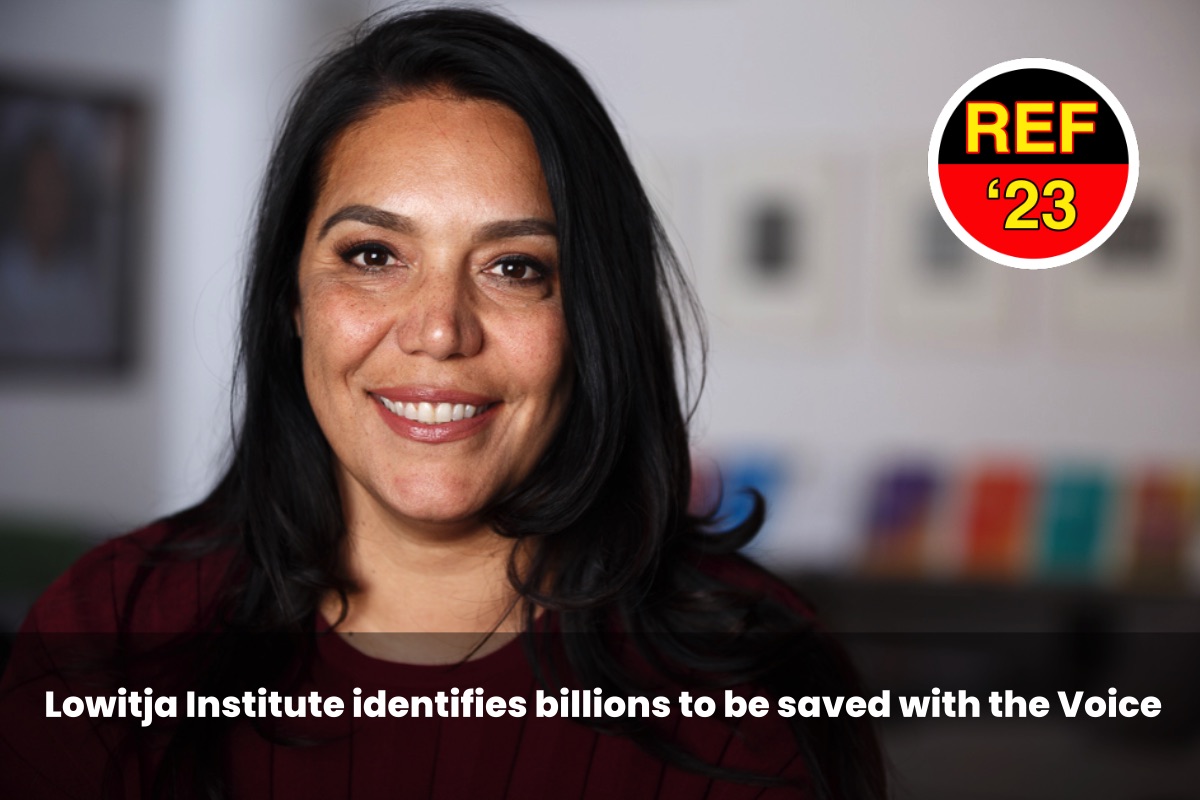
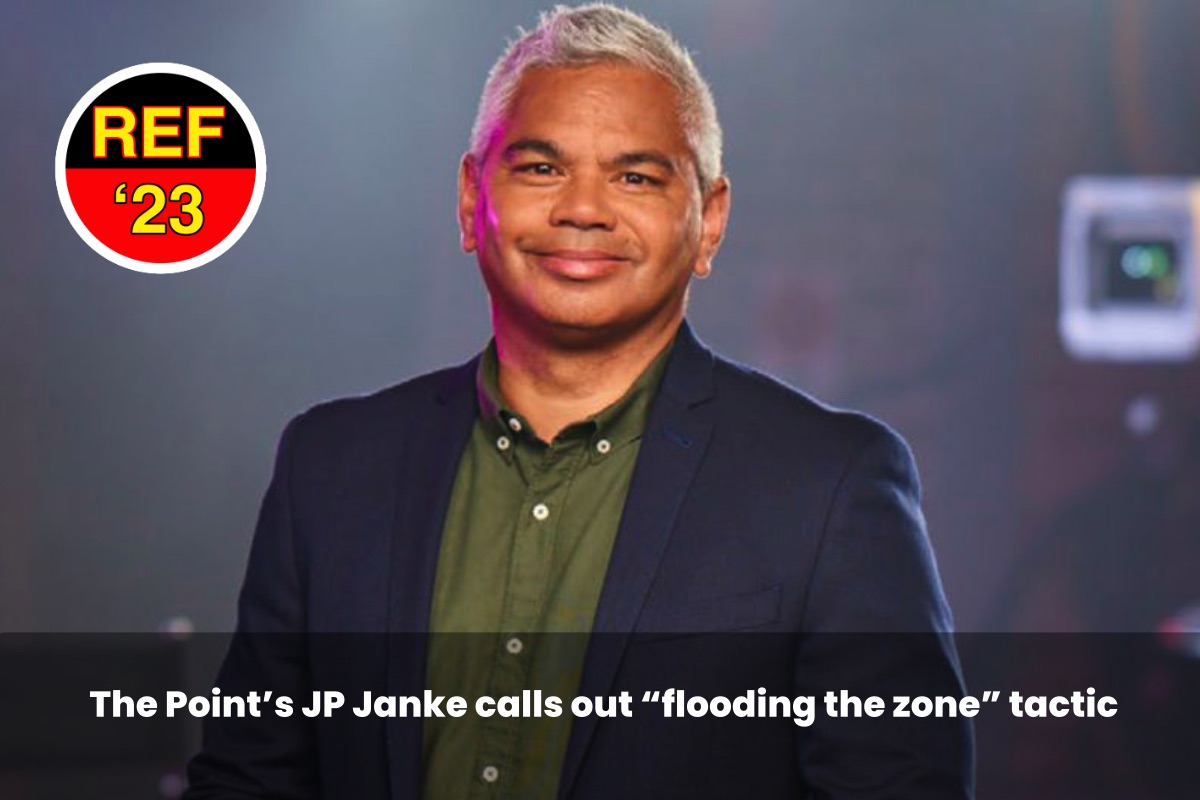
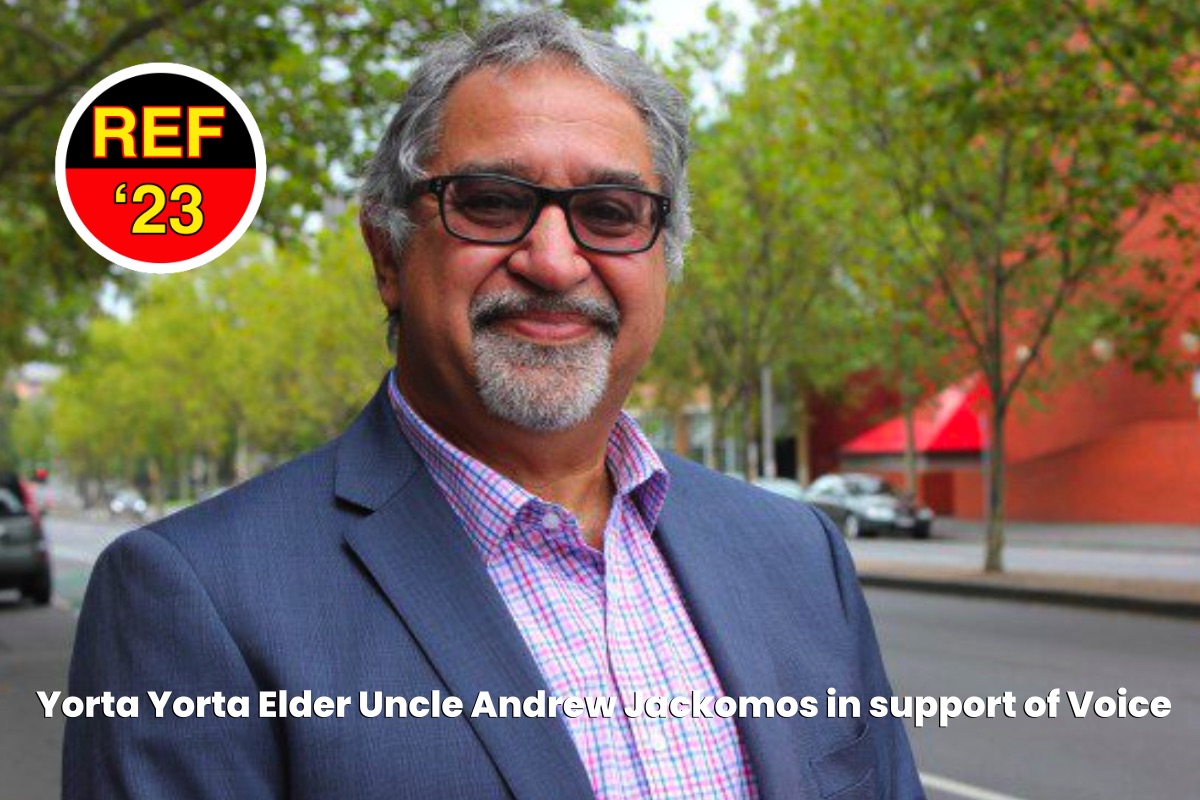
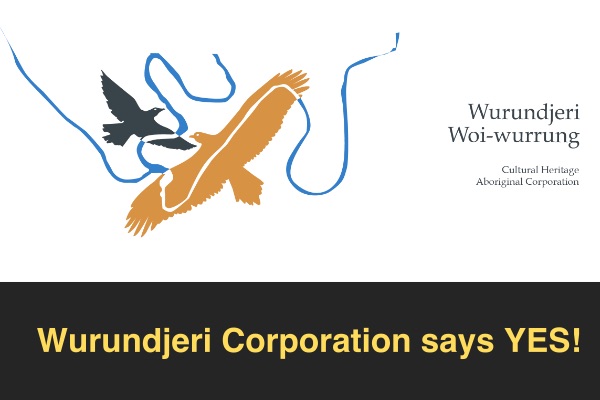

0 Comments